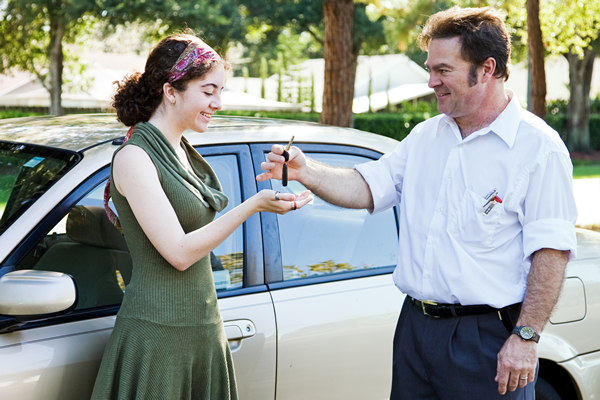In a big country like India, owning a car is almost a necessity since public land transports are almost limited to buses, cabs (fares will surely burn your wallet!) and subways. Regrettably, not all are able to afford the luxury of paying the monthly expense on car loans, thus many people still opt for what public transports could offer.

While this information may not be new, I would still like to share it anyway: go for a second-hand car. Many of you may shrug your shoulders and browse away, or vehemently say, ‘Yeah, right! And suffer an everyday trip to the mechanic and spend what is equivalent to two brand new cars.’ But before you do either of the two, just skim through the tips I’m about to share in buying a second-hand car and… who knows, this may be your day.
Choose the car that suits your circumstances
There’s a huge possibility that you may get what is not actually your dream car. However, just bear in mind that you are choosing practicality over idealism. Set your priorities right and do a careful research. In the process, short-list the categories into: brand, capacity and yes… budget. You are buying a second-hand car because you’re on a tight budget, right? So there… no luxury car brands though they are second-hand ones.
Forums and reviews will help you a lot in deciding which car to use. You can also use an online calculator to help you determine which car you can pay. Take into account about the other expenses in using your car and not only the actual car value. That means: fuel economy and maintenance expense. Note that other areas are also to be considered based on the status of the car you choose.
If you’re done researching about your car- prospect, you may want to extend your information into looking out which dealership you may want to avail. Look out for sales, the classified ads, independent car lots or individuals. You may ask around, use your networking if possible.
Settle financial preferences
If you already a hard, cold cash then that’s excellent. However, if this is still impossible, go to your bank and ask assistance. You may find that they are willing to grant you your car loan. Some banks may even advice you about this matter and may give you a better service.
Do a lot of investigations and tests
If you already contacted a dealership or the owner of the used car, it’s imperative for you to get all the information you need. Be patient. Remember that you are investing here. Gather information about the vehicle’s history, previous owners (if in dealership or independent car lot), and VIN (Vehicle Identification Number). Meticulously check the car. Look out for any damage acquired from flood or accident and if there are a lot of tears and frame damage.
Do not hesitate or be shy to ask them of a test drive. Hit the road for at least several minutes, enough to know about the performance of the car. Consider the following: engine, acceleration, brakes and tires, steering wheel, exhaust and emissions, and other components. Check and double check. Buying a used car doesn’t mean that you have to jeopardize your own safety and that of your family’s.
Ask for technical assistance of a mechanic
If you’re not so sure about other issues regarding vehicular components, enlist the help of a professional mechanic. Take this tip: If the dealer would not want you to bring your own mechanic, abort your deal with that hoodlum. Get another deal and always ensure that safety should be at the top of your priority list.
Discuss about your bargain
You should have the idea of the car price before sealing the deal. Try negotiating into lowering the price, so don’t look so eager even if you really are! When all is set, and each party approves, do not leave yet. Be sure to get done with your paper works. Get your copy of V5, MOT, service history and at least 2 sets of keys. If you are not convinced with the supporting papers your dealers has provided you, consult the police. Provide them with the history you have on hand.
It surely pays to be extra careful when it comes to investing, and buying a car isn’t just an ordinary investment requiring monetary value. Your vehicle should be a good investment when it comes to safety issues, too. If you’re not ready, don’t force it. Just take your time and do your assignments well.
